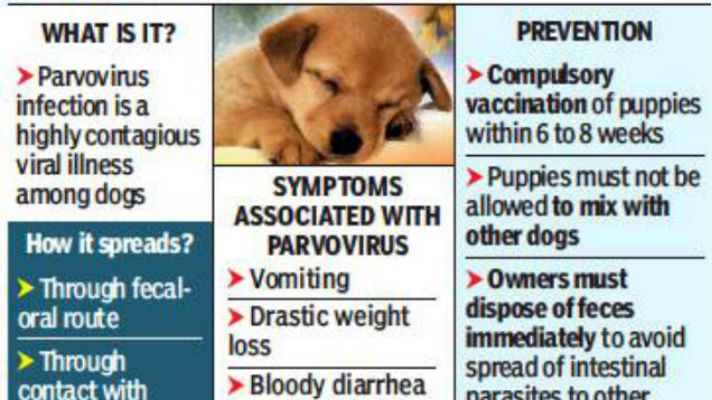
BASSETERRE, St. Kitts (August 13, 2020) Ross University School of Veterinary Medicine (RUSVM) officials have confirmed more than ten cases in the past week of parvovirus in dogs on the island of St. Kitts. This represents a significant increase in incidences of this condition, that if untreated can be deadly, but it is also preventable by vaccination.
What is Parvovirus?
Parvovirus is a highly infectious virus that attacks the gastrointestinal tract of dogs. Parvovirus affects dogs of all ages and can be identified through common symptoms that include sudden onset of bloody diarrhea, lethargy, unwillingness to eat and repeated episodes of vomiting.
How can my dog get Parvovirus?
The highly contagious virus can spread directly from dog to dog. Once infected, a dog can contaminate food, water bowls, collars, and leashes, bedding, or crate. While there is no evidence that parvovirus infects humans, humans can aid in the spread the virus through contamination of hands, clothing, and shoes from an infected dog.
Can my dog be treated and/or is this disease preventable?
Infected dogs can die without treatment, and even with gold standard treatment may succumb to the disease. The best chance for survival is quick recognition and initiation of treatment.
RUSVM advises pet owners to contact your pet’s veterinarian for assessment and treatment if you suspect that your dog has any of the symptoms outlined. Once your dog is showing signs of the virus, veterinarians can treat symptomatically to help combat the deleterious effects of the virus.
We strongly encourage all new puppy owners to seek vaccination of your puppies immediately as this will prevent infection, particularly in outbreaks like we are currently experiencing. Veterinarians at the Ross University Veterinary Clinic and around the island can help prevent the spread of virus early before exposure through vaccination. Parvovirus vaccine can be given as early as 6-8 weeks of age. Puppies will require booster shots every 3-4 weeks up through at least 16 weeks of age in order to be protected.
For more information on keeping your dog healthy and safe from parvovirus, contact Ross University Veterinary Clinic at 466-3056, Basseterre Animal Rescue center at 760-2272, or your regular veterinarian.









